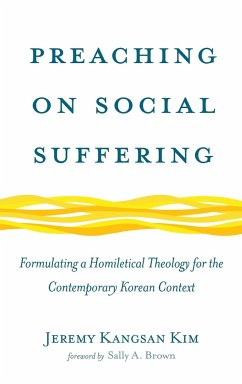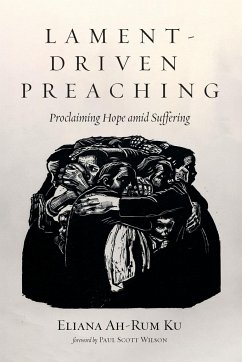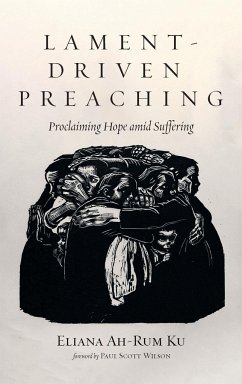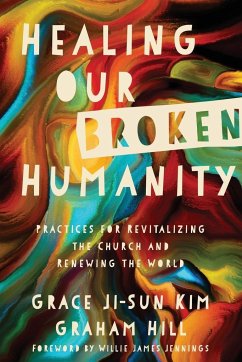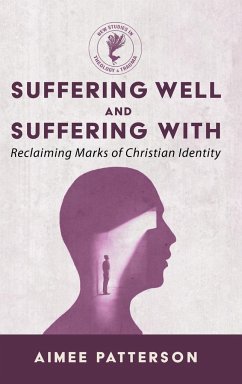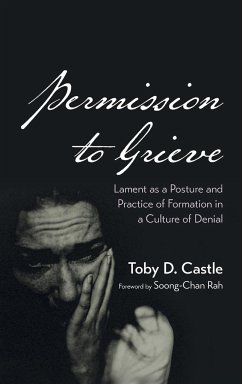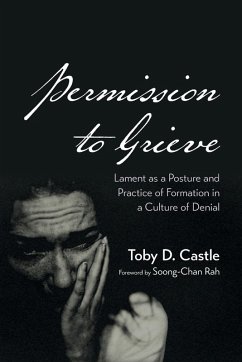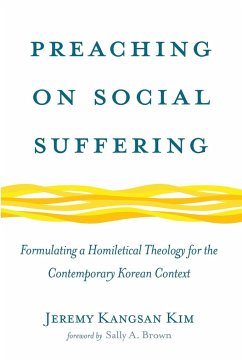
Preaching on Social Suffering
Versandkostenfrei!
Versandfertig in 1-2 Wochen
26,99 €
inkl. MwSt.
Weitere Ausgaben:

PAYBACK Punkte
13 °P sammeln!
In this book, Jeremy Kim criticizes current Korean and Asian American homiletical strategies for their lack of a theological point of view on social suffering. He argues that preachers must develop an alternative theological-homiletical viewpoint on social suffering, one that has pastoral and prophetic approaches. These two approaches offer people a refuge and a voice, not only in the church community but also in the larger social community. Thus, the author suggests that preachers adopt the biblical lament, highlighting its dual tasks of compassion (the pastoral dimension) and resistance (the...
In this book, Jeremy Kim criticizes current Korean and Asian American homiletical strategies for their lack of a theological point of view on social suffering. He argues that preachers must develop an alternative theological-homiletical viewpoint on social suffering, one that has pastoral and prophetic approaches. These two approaches offer people a refuge and a voice, not only in the church community but also in the larger social community. Thus, the author suggests that preachers adopt the biblical lament, highlighting its dual tasks of compassion (the pastoral dimension) and resistance (the prophetic dimension). The author, who is a non-Western Asian American preacher, also incorporates East Asian philosophical and hermeneutical research on ren, a positive element of Confucianism, into his argument. He applies this core concept of Confucianism to the preacher's homiletical strategy toward social suffering. Thus, the author proposes that Korean preachers should recover ren, which contains sincere compassion for others as well as a voice of resistance that reveals unjust social structures as the cause of social suffering and expresses both within Uri (we), the community.





